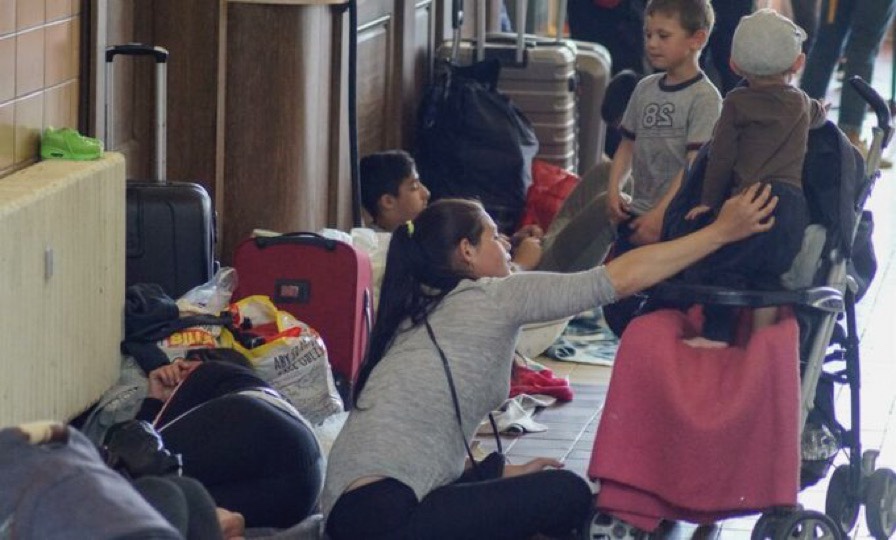Expert psychology team set up UK foundation for Ukraine’s expected civilian population-wide PTSD

A senior team of expert Ukrainian psychologists are to launch a foundation in the UK, the Comprehensive Psychological Recovery Programme, with both online and face-to-face capacity, to help treat the enormous numbers of individuals suffering mental health issues currently, or in the future, because of the Russian invasion, and to mitigate society-wide effects.
Founder Olga Bogataia, herself a victim of personal tragedy and traumas as she tried to escape Ukraine with her children and sick father, announced the Foundation launch today while speaking at the Hertford Club Literary Festival, in Hertford.
Olga explained:
“The psychological traumatisation and disability suffered not only by the military, but by all society, will have stunning effects at both individual and societal level – as seen in previous conflicts. These effects will have not only humanitarian, but social and economic consequences. Our foundation will provide online and face-to-face capacity to enable healing processes for the millions affected by this terrible war.”
Featuring a launch team of 12 high-level psychology experts, the post-war rehabilitation project is distinguished by its specific focus on the topic of the psychological effects of war on the population. It presents the possibility of a comprehensive solution to all the psychological problems caused by the war, both on an individual and societal level. It is relevant for work with populations affected by wars, internal, regional conflicts, occupation, forced displacement and migration.
Through online help (offering incoming testing, video lectures and podcasts, and self-help tool guides), psychological support offices (offering face to face individual and mini-group counselling and self-help groups), and a psychgological helpline, he project’s direct objects are:
to support mental health and psychological well-being among war-affected populations
ensure access to quality assistance for survivors
to prevent the occurrence of irreversible, long-term psychological effects of the war
to form the readiness of refugees for a socially active life
ecological adaptation of society to new conditions
to work to consolidate, solidarize society, prevent the effects of stigmatization of the refugees




